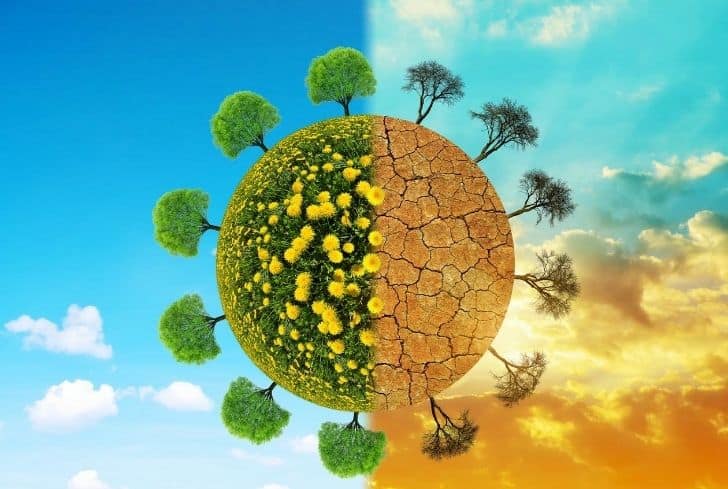Environmental Conservation
- Get link
- X
- Other Apps
Human existence is quite impossible without the presence of a healthy ecosystem. Our environment comprises all living and non-living components and their interactions within a natural habitat. Environmental conservation has become one of the core issues that need to be addressed to battle climate change and global warming. Sustainable development is the need of the hour which can save the mother earth from the repercussions of industrialization. In this blog, we will aim to elaborate upon environmental conservation, its needs as well as methods.
What is Environmental Conservation?
Environmental conservation is the practice of us humans saving the environment from the loss of species, and the destruction of the ecosystem, primarily due to pollution and human activities. Conservation is vital in saving and helping both animals and trees as we are all dependent on one another for survival.
Trees convert carbon dioxide produced by factories into oxygen, which helps us breathe and respire. The loss of species, which makes them go extinct, would mean they are forever lost and cannot be seen by curious eyes, or studied by the scientific minds. Additionally, such loss or destruction of ecosystems would disrupt the food web, messing up the whole ecosystem in general.
There is much to do when it comes to rebuilding and protecting what’s left of natural resources and the biodiversity within our ecosystems. Environmental conservation is an umbrella term that defines anything we do to protect our planet and conserve its natural resources so that every living thing can have an improved quality of life.
Importance of Environmental Conservation
It has become inherently important to work towards environmental conservation in contemporary times. The following pointers elucidate this crucial need to save the environment from further degradation:
To reduce air, water and land pollution.
To facilitate the conservation of natural resources for our future generations.
To ensure the protection of biodiversity.
To implement sustainable development.
To restore the ecological balance.
To save our planet from harmful repercussions of global warming.
“A true conservationist is a man who knows that the world is not given by his fathers, but borrowed from his children.”
-John James Audubon
Methods of Environmental Conservation
Now that you are familiar with the meaning and importance of Environmental Conservation, let’s understand the core methods through which it can be effectively facilitated:
Soil Conservation
As one of the prominent methods for environmental conservation, the need for soil conservation has arisen to tackle the harmful effects of soil pollution. On earth, the soil is the main element that plays a pivotal role in soil erosion, land degradation and floods. Soil is filled with rich nutrients for plant production. Soil conservation can be carried out by ensuring minimal use of fertilizers and venomous chemicals as well as abolishing the disposal of harmful industrial waste in the soil.
Waste Management
Especially in developing countries and congested places, on a daily basis, a large amount of waste is thrown away recklessly on the streets and roads. The improper disposal of waste segregation can lead to various dreadful diseases as well as soil pollution.
To ensure minimal wastage as well as facilitate waste disposal, we can opt for various techniques like the 3R’s, i.e. Reduce, Reuse and Recycle, dry and wet waste segregation, amongst others.
Forest Conservation
We know that plants and trees are the essential sources of air, food as well as other day-to-day products we use. Forests are the dwelling place of different living creatures and a single disturbance in the ecosystem can cause disruption in the water cycle as well as the food chain. Thus, afforestation is amongst the core Environmental conservation and aims to plant more trees as well as save the existing ones from cutting down as trees play a crucial role in maintaining the ecological balance.
Pollution Control
As the increase in temperature is concerning, there is a need to keep a watch on the toxic compounds we ingest that pollute the atmosphere. We need to adopt environmentally sustainable methods to minimize multiple forms of emissions, such as eliminating waste, saving electricity, limiting the unnecessary usage of fertilizers, insecticides and pesticides, and using energy-efficient appliances, among others.
Measures to Conserve Environment
Here are some measures to save the environment:
1.Deforestation must be stopped
2.Natural non-renewable resources must be utilized properly
3.Every year, we lose a huge number of forest life due to forest fire. We must find a solution to this.
4.Afforestation is the best way to conserve the environment
5.Create public awareness
6.Control pollution and population
7.Recycle goods
8.Adopt an environment-friendly lifestyle
9.Adopt waste management techniques
10.Species on the verge of extension should be saved.
Do watch this video by National Geographic to have more insights about the topic.
- Get link
- X
- Other Apps




Comments
Post a Comment